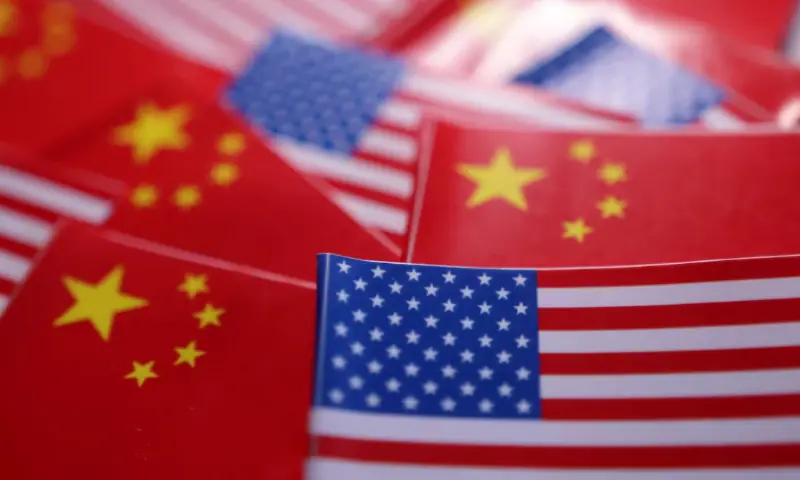China to lift export controls on 15 US firms, ease curbs on 16 others
China will remove export control measures against 15 US entities and continue to pause such measures for another 16 entities for a year, effective November 10, a commerce ministry statement showed.
China will also remove or suspend for one year measures it took against some US entities in March and April, when it added them to the unreliable entity list, effective November 10, according to a separate commerce ministry statement.
The removal and suspension of export control measures will allow Chinese exporters to apply for the exports of dual-use items to these entities.
The other move involving the unreliable entity list will enable domestic firms to apply to conduct transactions with the entities.
Beijing lifts some tariffs on US farm goods but soybeans stay costly
China will suspend retaliatory tariffs on US imports, including duties on farm goods, after last week’s meeting of the two countries’ leaders, Beijing confirmed on Wednesday, but imports of US soybeans still face a 13% tariff.
The tariff commission of the State Council, or cabinet, will scrap duties of up to 15% imposed on some US agricultural goods from November 10, while keeping levies of 10% introduced in response to President Donald Trump’s “Liberation Day” duties.
Investors on both sides of the Pacific were relieved when Trump met Chinese leader Xi Jinping in South Korea, easing fears that the world’s two largest economies might abandon talks to resolve a tariff war that has disrupted global supply chains.
Trump and the White House were quick to issue their take on the meeting, but the Chinese side did not immediately give a detailed summary of what it had agreed.
“Broadly, it’s a great sign that the two sides are making rapid progress in putting the deal into effect,” said Even Rogers Pay, a director at Beijing-based Trivium China.
“It shows they’re aligned and that the agreement is likely to hold up.”
The tariff cut nonetheless leaves Chinese buyers of US soybeans facing tariffs of 13%, a cost traders said makes US shipments still too expensive for commercial buyers, compared to Brazilian alternatives.
“We don’t expect any demand from China to return to the US market with this change,” said one trader at an international trading company.
“Brazil is cheaper than the United States and even non-Chinese buyers are taking Brazilian cargoes.”
After the meeting, the White House said China would purchase at least 12 million metric tons of US soybeans in the last two months of 2025 and at least 25 million tons in each of the next three years.
Beijing has yet to confirm those figures, and traders are watching closely for signs of large-scale purchases.
Cheaper Brazilian beans
Chinese importers recently bought 20 cargoes of cheaper Brazilian soybeans as South American prices eased on expectations of a resumption of US sales to the world’s largest soybean importer.
Brazilian soybeans for December shipment are quoted at a premium of $2.25 to $2.30 over the January Chicago contract, compared with $2.40 a bushel being offered for US beans shipped from the US Gulf Coast, traders said.
Before last week’s meeting, state trader COFCO made China’s first purchases from this year’s US harvest, an act analysts saw as a goodwill gesture.
In 2024, China bought roughly 20% of its soybeans from the United States, down from 41% in 2016, the year before Trump’s first presidential term, customs data showed.
This year, China has largely shunned US crops from the autumn harvest due to high tariffs, costing American farmers billions of dollars in lost exports.
In a meeting with a US agricultural trade delegation on Tuesday, China’s senior trade negotiator Li Chenggang attributed “fluctuations” in agricultural trade between the two countries to US tariffs, a summary of the meeting issued by China’s commerce ministry showed.
China and the United States are “important agricultural trade partners”, Li said, adding that he hoped Washington could work with Beijing to create favourable conditions for cooperation.
China’s cabinet said it would also suspend for one year the 24% additional tariffs it imposed on US goods in April.
For the latest news, follow us on Twitter @Aaj_Urdu. We are also on Facebook, Instagram and YouTube.
























Comments are closed on this story.